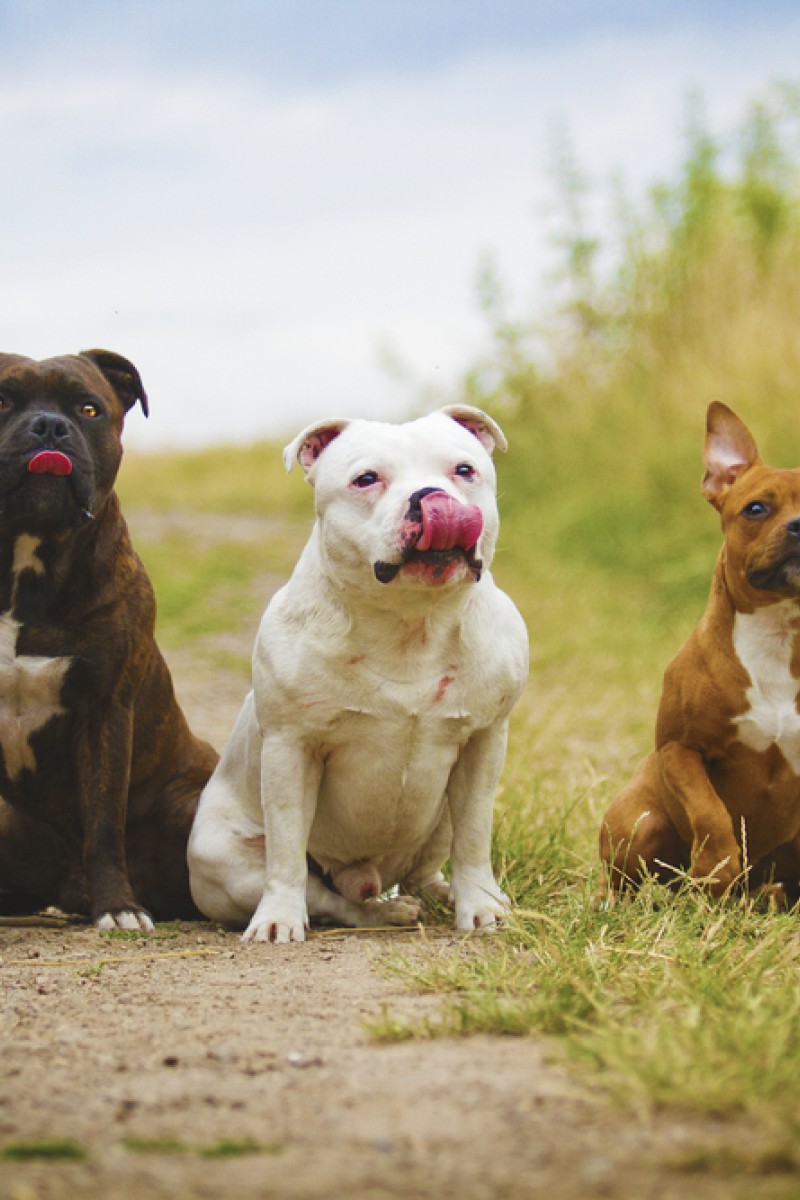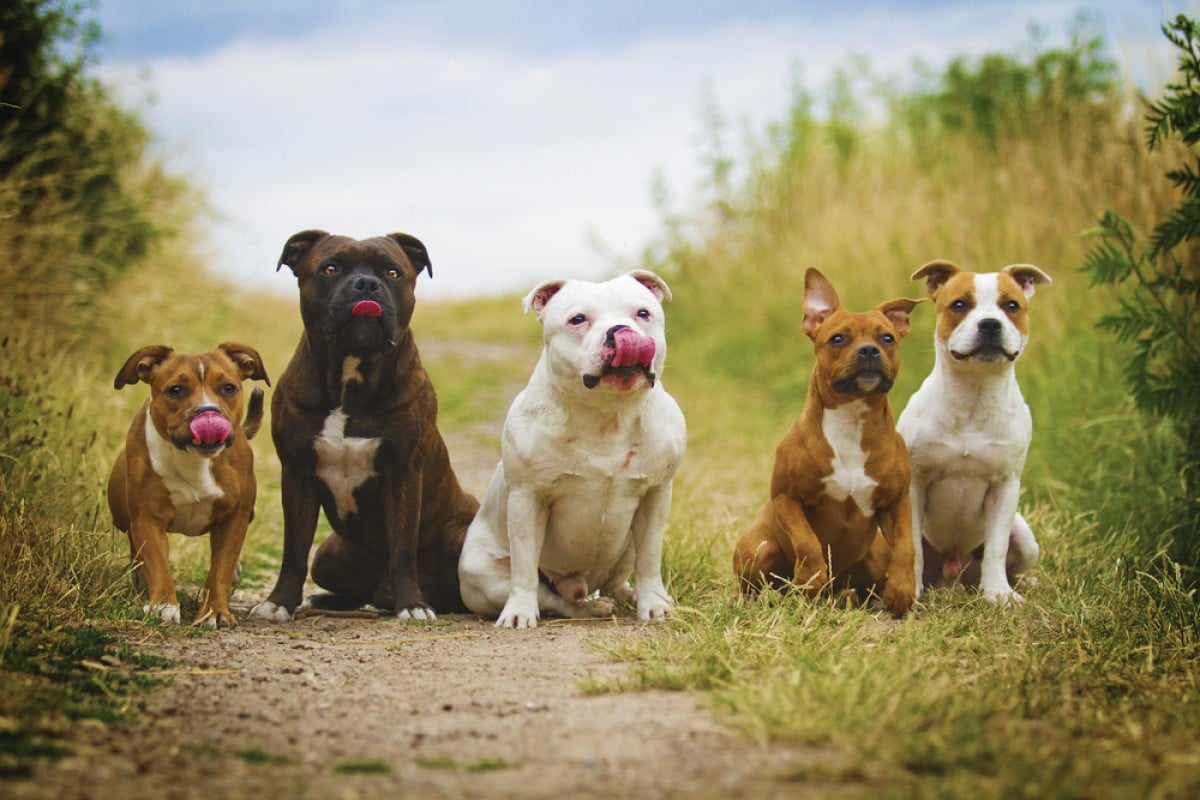
The true cost of that doggy in the window: things you need to think about before getting a dog in Hong Kong
- Dogs can be wonderful companions, but there are plenty of people who aren’t ready for the realities of dog ownership
- Here's what you need to know before you get a dog
 For all their cuteness, puppies need love and attention like any other pet animal.
For all their cuteness, puppies need love and attention like any other pet animal.If you’ve ever had a two-month-old Labrador puppy bound towards you, you’ll know that it’s impossible not to want one. Puppies are undeniably cute. But before you rush out to adopt one (because of course, you don’t want to perpetuate the horror of puppy farms by buying one, although that’s another story altogether), there are a lot of things to consider. Young Post spoke to Teresa Lee, welfare programme manager at SPCA Hong Kong, and Dr Michael Bradley, a vet at Stanley Veterinary Centre, about things you should know before making the commitment.
Most of us would agree that Hong Kong is a very convenient city, thanks in large part to the convenience of the MTR. But dogs aren’t allowed on the MTR – and that’s not the only place they’re not welcome.
“Hong Kong is not a very dog-friendly city. There are lots of restrictions on where you can take them,” says Bradley. “In other cities it is common to see dogs on trains and buses, and you’ll also see dogs in restaurants and at pavement seats in cafes. None of this is possible in Hong Kong and the fines for breaking the rules can be steep.”
Without the MTR, you may need to resort to taking taxis, but be warned that taxis charge HK$5 per dog – even for a tiny puppy that sits on your lap. Many Hongkongers also complain that a lot of taxi drivers won’t stop if they see you have a dog.
Behind the adorable doggy or kitty you see in the pet shop window is unseen pet cruelty
Dog lovers already know that all dogs – even the tiniest ones – need daily exercise, but will that work with your lifestyle now ... and in the future? If you are planning to go to university overseas in a few years, who will look after your dog?
As Lee simply puts it: “It’s a long-term commitment. Are you going to be able to commit to this animal for 15 years?”
Beyond their simple daily exercise needs, you need to think about the health care for your dog, and that can be costly. That doesn’t mean choosing between organic and non-organic pet food. Puppies need a lot of shots and medical attention, and so do older dogs.
“People don’t think at all about the medical expenses. When your dog gets older, you’re going to need to do yearly blood tests, and yearly dental cleaning to make sure that they don’t get horrible dental diseases,” says Lee. Puppies also need monthly vaccines, and all dogs need to be dewormed regularly. There are a lot of diseases local to Hong Kong, and some of these are spread by ticks, so monthly flea and tick prevention is important, too. “This is the stuff that adds up,” says Lee.
Pet insurance, which is common in Britain and the US, is still a relatively new concept in Hong Kong, so it can be unclear what you’re getting. “It is worth shopping around for the best policy as the things covered by different plans can vary hugely. Premiums can start at around HK$1,000 a year,” says Bradley.
Two dogs died from heatstroke at the 19th Pet Fair Asia in Shanghai a while ago, highlighting just how important it is to understand your dog’s health needs. Like Shanghai, Hong Kong can get very hot and humid. And some dogs struggle in these conditions. “Brachycephalic [snub-nosed] breeds like bulldogs, pugs and Boston terriers all have severe breathing problems because of their misshapen faces. They are also very prone to heatstroke, making them completely unsuited to hot and humid Hong Kong,” says Bradley.
Mercy or murder? The controversy surrounding animal euthanasia
With tiny Hong Kong apartments, long school days, and late-night tutorials, a recurring question is whether it’s fair to leave a dog on its own all day.
“If they are well exercised, then most dogs will be content to spend a few hours every day on their own, as they will sleep if they are tired,” says Bradley. “If dogs are regularly left on their own for more than three to four hours a day, they can develop quite serious anxiety and stress – especially if they are also not well exercised.”
Both Bradley and Lee explain that this is why a lot of dogs are abandoned in Hong Kong: people get a dog, then leave it at home all day with no stimulation nor exercise. Then, when these dogs inevitably develop behavioural problems, the owners abandon them. Owners don’t realise that the problems their dogs have are often caused by the way they are treated.
If you don’t think you’re ready for dog ownership, you can still get your fill of puppy love by volunteering with the SPCA or Hong Kong Dog Rescue. They’re also the people to talk to if you feel you can properly commit to a dog, and give it lots of love and attention. Even if you want a pure-bred dog, you don’t need to go to a pet shop.
As Bradley says: “It’s amazing what comes through the rescue organisations, and, if you are prepared to take your time, you will always be able to find the perfect dog without supporting the puppy trade.”
The SPCA fights an ugly uphill battle for animals in Hong Kong
Fun facts about dogs:
- Dogs can’t use human toothpaste because they would swallow it, so they need special canine toothpaste.
- Onions, grapes and raisins and chocolate are all poisonous to dogs, as is xylitol in sugar-free gum.
- Lilies, tulips and other plants can also potentially be toxic to dogs.
- All household detergents/chemicals, human medication, plants, insecticides, herbicides and rodenticides should be kept well away from pets.
- For the last 30 years someone has been maliciously poisoning dogs on Bowen Road in Mid Levels. Sadly more than 200 dogs have been poisoned over the years.
- Some of the most common dog diseases in Hong Kong are spread by ticks, so good tick prevention is very important for good health.
- The breeds of pedigree dogs that are common in Hong Kong have changed lots in the last 15 years. Pekingese and Shih Tzu used to be very common but now there are very few of them They seem to have been replaced by Toy Poodles.
- Brachycephalic (snub nosed) breeds like Bulldogs, Pugs and Boston Terriers are also more common now. All of these breeds have severe breathing problems because of their misshapen faces. They are also very prone to heatstroke making them completely unsuited to hot and humid Hong Kong.
- Many people are sadly still buying puppies in pet shops. Often these pups are sick and they are usually bred in puppy mills under terrible conditions with little regard for their welfare or the well-being of their parents. It is far better not to support this industry and instead save a life by rehoming a dog from a rescue organisation like the SPCA or Hong Kong Dog Rescue. Whether you’re happy with a mutt or a pedigree, these rescue organisations will have the perfect dog for you.